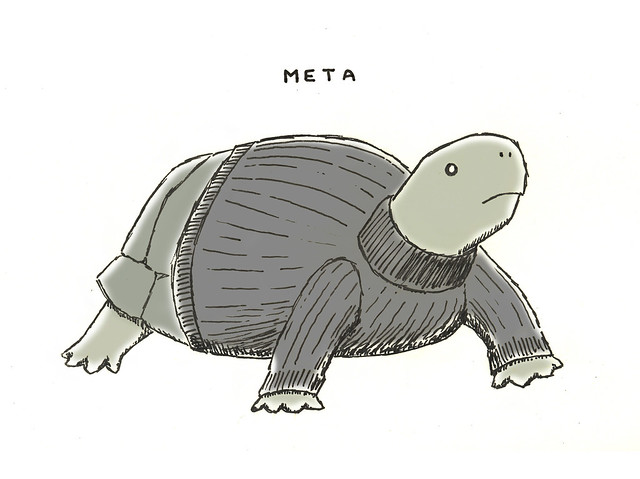I take introductions literally, like, assume them to be truth.Spoiler: it's not. I think I was convinced of that somewhere around the cannibalistic algae island. Yeah, it took me that long.
And I thought that Life of Pi was a true story for about 200 pages.
Aside from embarrassing, I find this predicament to be delightfully appropriate. Because, in the end, isn't the whole book about answering the question, What is a True Story?
 I always appreciate questions like that, and I always appreciate works of art that wrestle with them beautifully and with excellence. What better way to discern the nuances of art than through art? What better way to define a story than through story?
I always appreciate questions like that, and I always appreciate works of art that wrestle with them beautifully and with excellence. What better way to discern the nuances of art than through art? What better way to define a story than through story?While I applaud Yann Martel for dealing with this question in so skillful and persistant a way, there is something about it all that sticks. It doesn't feel right. The ending feels forced; like the main character's voice is too omniscient. It's too careful, too calculated. The end wraps up too conveniently with too much of a sermon in it (I should have expected that, seeing as the tagline of the whole tale is that it would make me believe in God). There is a catch in the Beauty, which, in my experience, means that there is probably a catch in the Truth. If only due to the principle of meta.
The Principle of Meta: The outside layer is affected by the inside layer. Necessarily. If there is a bump on my turtle's neck, it will show up through the turtleneck.
Granted, causality only works in one direction. The principle does not require that anything wrong with the outer layer is caused by the inner layer; it just notes that it may be possible. If there is a bump on the turtleneck covering my turtle's neck, I might assume that this is because there is a bump on my turtle. But there also might just be something wrong with the sweater.
With stories, at least with well-written ones, a lot of times it does run the other way, and there is a bump on the turtle.
The question Martel deals with is an important one. Is there a difference between what is True and what is Real? Maybe. Yes. I can see that. Truth requires meaning, order; Reality requires only facts. This is why Truth tends to make better stories.*
But how do we know what is a True Story? According to Life of Pi, the answer is: well, whatever you like best. Believe what is Beautiful. Because of the principle of meta.
And darn it, this makes sense. If there is a story that is really Beautiful, it must be True. Right? If the outer layer is unaffected, the inner layer must be okay. If there were a bump in the Truth, it would mar the Beauty. Platonic ideals and all. I wrote a whole 20-page paper about this four years ago.
But somehow what Life of Pi is saying just doesn't sit. It doesn't. If the only qualification for something to be True is that it is Beautiful, then yes-- you should be a devout Hindu, Christian, and Muslim, simultaneously. You should tell two versions of all stories and believe the one that sounds better. Or both, if it suits you.
I think this is the issue with the novel. Here, ultimately what 'beautiful' comes down to is what suits you. What is attractive? Must be beautiful. Must be true. It is how Pi treats religion. It is how the Japanese officers treat Pi's stories.
That is one heck of a bump on my turtle.
It seems right. That a Beautiful story would also be True is everything we want. It's the sum of our experience and feeling of art. But we can't leave it there. Beautiful is so much more than what-appeals-to-me. It is a very definite and solid measure based on a transcendent standard, like Truth.
--at least, like we used to consider Truth. As far as novels go, Life of Pi sums up very nicely the assumptions and consequences of a modern understanding of ideals. It's not only moral relativity, where Goodness is dependent on what appeals to me... and not only personal preference, where Beauty is dependent on what appeals to me... but also straight relativity, where because of the first two things Truth is also dependent on what appeals to me. And it's all right here, conveniently stuck in one novel.
That said, Life of Pi was for the most part enjoyable and fabulously written. I recommend the book if not the worldview.
*If you're feeling ambitious and want to see that for yourself, go read The Gift by Nabokov.
No comments:
Post a Comment